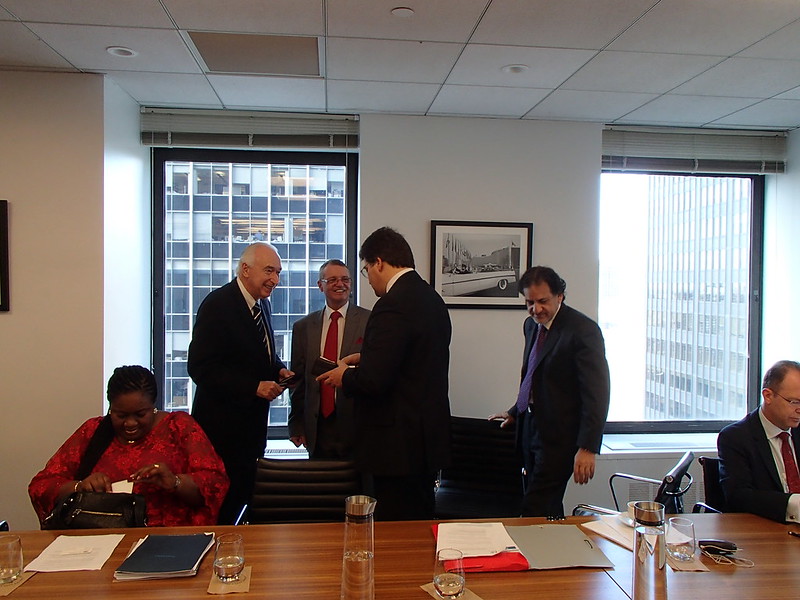On July 15, 2013, PGA organized a strategic meeting of its Executive Committee with key Ambassadors to the UN, including Members of the PGA UN Committee, and civil society leaders on the UN Security Council and Accountability. The meeting was kindly hosted by the Permanent Mission of Liechtenstein to the United Nations in New York and chaired by the Permanent Representative of Liechtenstein to the UN, Ambassador Christian Wenaweser, who assumed the role of Chair of the PGA UN Committee.
This meeting was a follow up to PGA’s previous work on the ICC and the Security Council and a working group meeting organized by PGA and Chatham House in London in March 2012. The objective of the Strategy meeting was to study and address the agenda of the UN Security Council on Peace and Justice with emphasis on existing norms, structures and procedures to seek accountability for the most serious crimes under international law to the extent that they constitute threats to international peace and security.
Participants of the meeting discussed the role of PGA and Parliamentarians in the upholding of norms, strengthening of structures and procedures, and the creation of political constituencies at both the international and national levels. Members of the PGA Executive Committee from all regions of the world also shared their experiences in their endeavors to ratify the Kampala Amendments, in specific the Amendments on the Crime of Aggression.
The outcome of this fruitful meeting was enhanced parliamentary support for an improved relationship between the UNSC and the ICC, and increased parliamentary and diplomatic support for the ratification of the Kampala Review Conference amendments to the Rome Statute of the ICC on the crime of aggression and war crimes. On the first priority, PGA Members and the PGA UN Committee are working towards more effective cooperation of the UN Security Council with the ICC, especially in respect of situations referred by the UNSC to the Court’s jurisdiction (Darfur/Sudan and Libya) and other situations in which the Court needs external support to ensure that its judicial decisions against impunity and to prevent the repetition of atrocities is fully enforced by all UN Member States.


